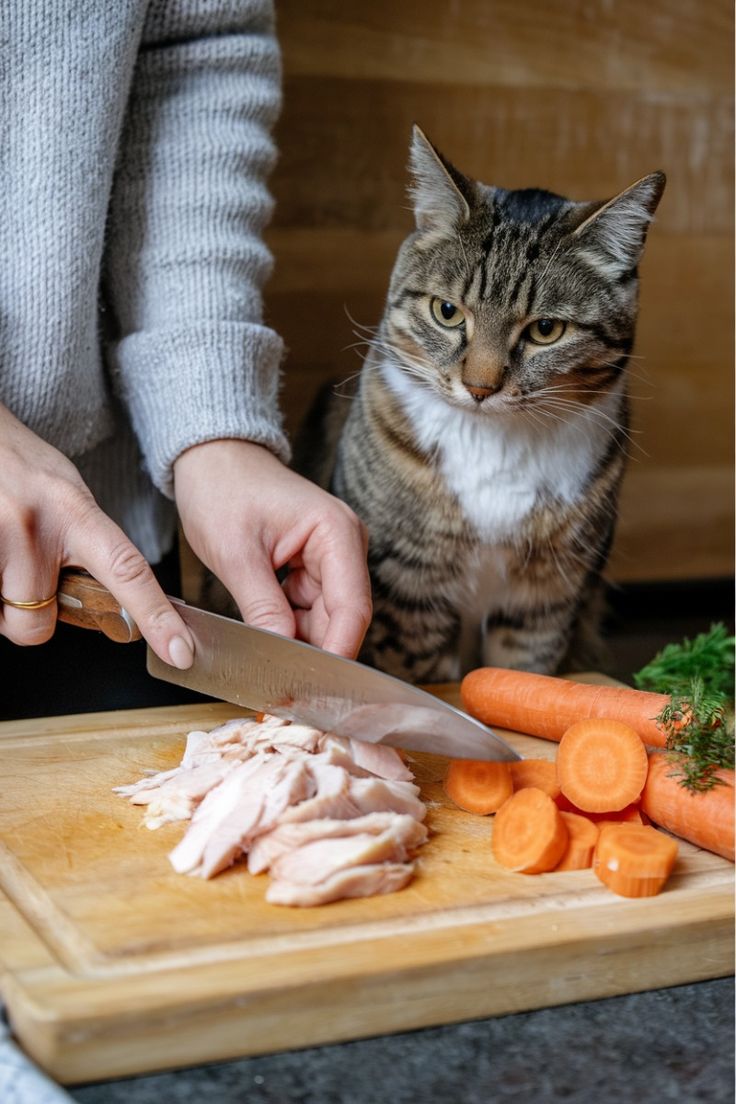In recent years, ethical and sustainable pet care has gained significant momentum. Among the options being explored by environmentally conscious cat owners is vegetarian wet cat food. Unlike vegan diets, vegetarian cat food may still contain animal by-products like eggs or dairy but excludes meat and fish. The question is: can cats truly thrive on a meat-free wet food diet?
In this guide, we’ll delve into the world of vegetarian wet food for cats, examining nutritional considerations, top brands, transitioning strategies, and whether it can be a safe alternative for your feline companion.
What Is Vegetarian Wet Cat Food?
Vegetarian wet cat food is a type of canned or moist food formulated without meat or fish. However, it may include animal-derived ingredients such as eggs or dairy, offering a compromise between fully vegan options and traditional meat-based foods. It is designed to provide complete nutrition with added vitamins, minerals, and essential amino acids like taurine.
Wet food is often preferred over dry food due to its higher moisture content, which helps maintain hydration and supports kidney and urinary health. Learn more about similar alternatives in our article on vegan wet cat food.
Why Choose Vegetarian Wet Cat Food?
Cat owners might opt for a vegetarian diet for several reasons:
- Ethical beliefs – Reducing reliance on meat industries
- Environmental concerns – Lowering the carbon pawprint
- Allergies or sensitivities – Some cats develop reactions to specific meat proteins
- Compromise diet – A middle ground between full veganism and meat-based diets
If you’re already exploring plant-based options, check out our article on plant based cat food.
Is a Vegetarian Diet Safe for Cats?
Cats are obligate carnivores, meaning they require nutrients commonly found in animal tissues. This includes:
- Taurine
- Arachidonic acid
- Preformed vitamin A
- Vitamin B12
A vegetarian wet cat food must be fortified with these nutrients, often via synthetic or fermented sources. If the food is labeled as “complete and balanced” according to AAFCO or FEDIAF guidelines, it should meet a cat’s dietary needs. However, veterinary supervision is highly recommended when switching diets.
Key Ingredients to Look For
When evaluating vegetarian wet food, keep an eye on these quality components:
- High-quality plant protein (e.g., soy, peas, lentils)
- Dairy or egg derivatives (for additional animal-sourced nutrients)
- Essential amino acids like taurine and methionine
- Omega-3 and omega-6 fatty acids
- Added vitamins and minerals
Watch out for artificial fillers or preservatives that could upset your cat’s digestive system.
Top Vegetarian Wet Cat Food Brands
- Benevo: A UK-based company offering vegetarian (and vegan) wet cat food, fortified with taurine and essential nutrients.
- Ami Cat: Italian brand producing vegetarian and vegan cat food with complete nutrient profiles.
- Evolution Diet: Offers both vegetarian and vegan formulations approved by vets and used in animal shelters.
These brands meet regulatory standards and use non-meat sources of vital nutrients. If you’re also considering dry food options, read about those in our vegan canned cat food guide.
How to Transition Your Cat to Vegetarian Wet Food
Transitioning should be gradual to avoid digestive upset. Here’s a suggested plan:
- Start with 25% vegetarian wet food mixed with 75% of your cat’s current food for 3-4 days.
- Shift to a 50/50 mix for the next 3 days.
- Then go to 75% vegetarian and 25% original food.
- Fully switch to 100% vegetarian wet food once your cat adapts well.
Observe your cat’s energy levels, coat condition, and bathroom habits. If you notice any concerning symptoms, consult your veterinarian immediately.
Wet vs Dry Vegetarian Cat Food
Wet food offers more hydration, better for kidney health and easier to digest. However, it’s generally more expensive and has a shorter shelf life once opened.
Dry food is convenient and affordable, but lacks moisture. Many owners find a mixed feeding approach (wet in the morning, dry at night) balances cost and nutrition. For more hydration-focused diets, check out our article on cat food for sensitive stomachs.
Health Monitoring and Vet Guidance
Once your cat is on a vegetarian diet, schedule regular veterinary checkups to ensure nutritional adequacy. Blood tests every 6–12 months can help assess organ function and nutrient levels (especially taurine, B12, and L-carnitine).
Weight loss, coat dullness, lethargy, or changes in stool can indicate dietary deficiencies. Don’t wait to consult your vet if you spot any signs.
Can Kittens Eat Vegetarian Wet Food?
Veterinarians generally recommend against feeding kittens a vegetarian diet. Kittens require concentrated animal-based proteins and fats for proper growth and brain development. A restricted diet could lead to irreversible developmental issues.
If you’re caring for a kitten, consider reading our article on raising neonatal kittens.
Conclusion: Is Vegetarian Wet Cat Food Right for Your Feline?
Vegetarian wet cat food offers a middle-ground solution for cat owners looking to minimize animal consumption without compromising pet health. With proper formulation, fortified nutrients, and vet support, some cats can thrive on this diet.
However, it’s not suitable for every cat, especially kittens, pregnant females, or cats with chronic conditions. Always consult your vet before making significant changes to your cat’s nutrition.
For more feline nutrition tips and ethical feeding solutions, visit our full archive at Neonatal Kitten Rescue.
